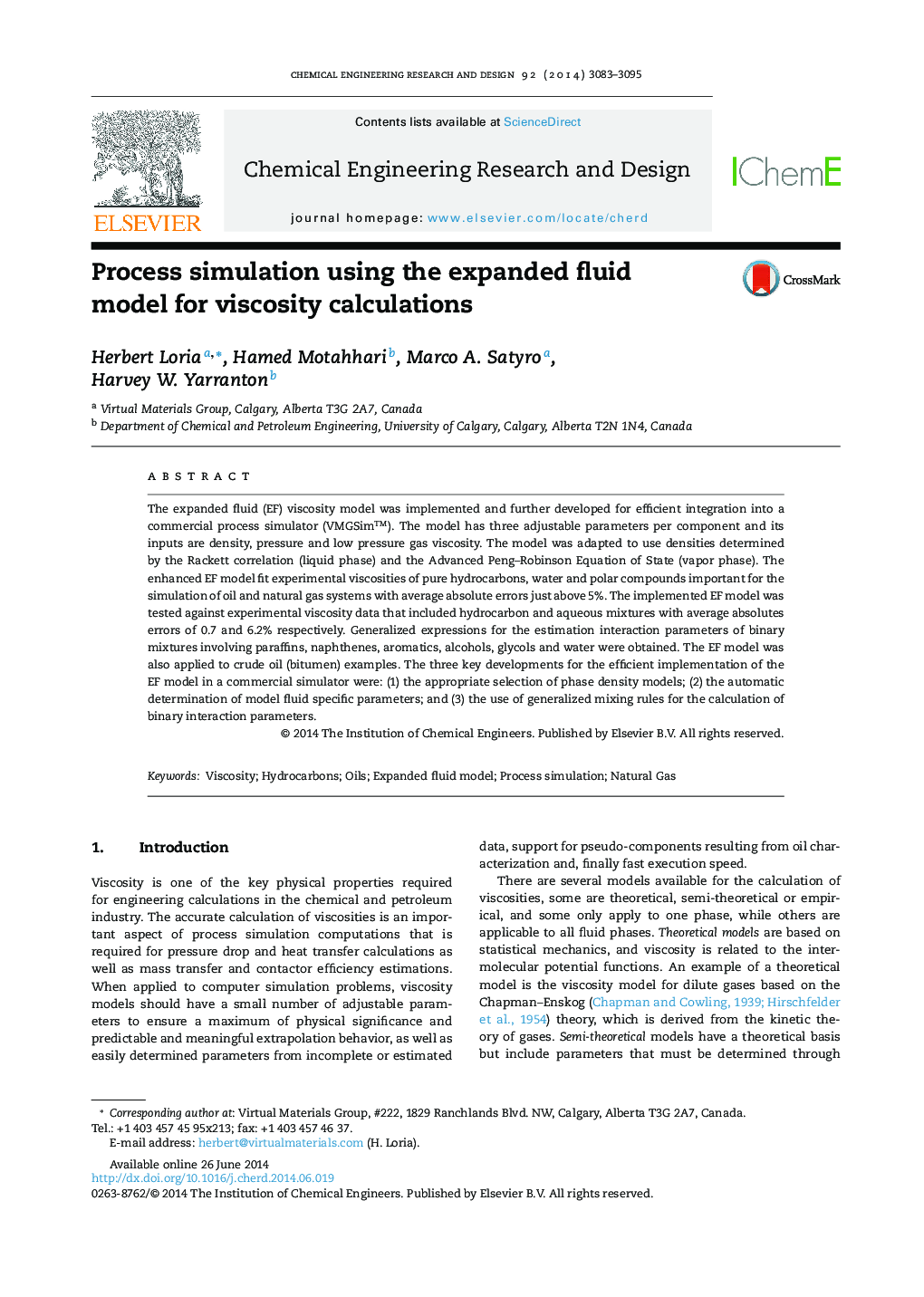| Article ID | Journal | Published Year | Pages | File Type |
|---|---|---|---|---|
| 620966 | Chemical Engineering Research and Design | 2014 | 13 Pages |
Abstract
The expanded fluid (EF) viscosity model was implemented and further developed for efficient integration into a commercial process simulator (VMGSimâ¢). The model has three adjustable parameters per component and its inputs are density, pressure and low pressure gas viscosity. The model was adapted to use densities determined by the Rackett correlation (liquid phase) and the Advanced Peng-Robinson Equation of State (vapor phase). The enhanced EF model fit experimental viscosities of pure hydrocarbons, water and polar compounds important for the simulation of oil and natural gas systems with average absolute errors just above 5%. The implemented EF model was tested against experimental viscosity data that included hydrocarbon and aqueous mixtures with average absolutes errors of 0.7 and 6.2% respectively. Generalized expressions for the estimation interaction parameters of binary mixtures involving paraffins, naphthenes, aromatics, alcohols, glycols and water were obtained. The EF model was also applied to crude oil (bitumen) examples. The three key developments for the efficient implementation of the EF model in a commercial simulator were: (1) the appropriate selection of phase density models; (2) the automatic determination of model fluid specific parameters; and (3) the use of generalized mixing rules for the calculation of binary interaction parameters.
Related Topics
Physical Sciences and Engineering
Chemical Engineering
Filtration and Separation
Authors
Herbert Loria, Hamed Motahhari, Marco A. Satyro, Harvey W. Yarranton,
